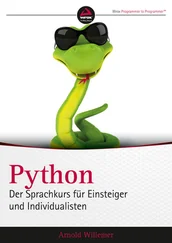Arnold Zable - Cafe Scheherazade
Здесь есть возможность читать онлайн «Arnold Zable - Cafe Scheherazade» весь текст электронной книги совершенно бесплатно (целиком полную версию без сокращений). В некоторых случаях можно слушать аудио, скачать через торрент в формате fb2 и присутствует краткое содержание. Город: Melbourne, Год выпуска: 2001, Издательство: Text Publishing Company, Жанр: Проза, на английском языке. Описание произведения, (предисловие) а так же отзывы посетителей доступны на портале библиотеки ЛибКат.
- Название:Cafe Scheherazade
- Автор:
- Издательство:Text Publishing Company
- Жанр:
- Год:2001
- Город:Melbourne
- ISBN:нет данных
- Рейтинг книги:4 / 5. Голосов: 1
-
Избранное:Добавить в избранное
- Отзывы:
-
Ваша оценка:
- 80
- 1
- 2
- 3
- 4
- 5
Cafe Scheherazade: краткое содержание, описание и аннотация
Предлагаем к чтению аннотацию, описание, краткое содержание или предисловие (зависит от того, что написал сам автор книги «Cafe Scheherazade»). Если вы не нашли необходимую информацию о книге — напишите в комментариях, мы постараемся отыскать её.
Cafe Scheherazade — читать онлайн бесплатно полную книгу (весь текст) целиком
Ниже представлен текст книги, разбитый по страницам. Система сохранения места последней прочитанной страницы, позволяет с удобством читать онлайн бесплатно книгу «Cafe Scheherazade», без необходимости каждый раз заново искать на чём Вы остановились. Поставьте закладку, и сможете в любой момент перейти на страницу, на которой закончили чтение.
Интервал:
Закладка:
Yet Laizer walks these streets as if they do not exist. He moves in and out of his parallel universes, pursued by the whispers of obstinate ghosts. He wanders a world of mirages. He walks the tracks of Siberia.
When Laizer and I next meet, at the appointed hour, I sense a new urgency. It can be heard in the tone of his voice, in the way he fumbles for words. It can be detected in the way he clasps his elbows, winds his arms about himself, or lifts them 84 up in a hopeless gesture. I feel the limits of my craft, the limits of what words can convey; and I am driven by an urge to enter into Laizer's parallel worlds with him, hand-in-hand; to burst beyond the walls of the cafe, beyond the streets of St
Kilda, into the images he is trying to create.
"Words cannot describe those months on the tracks of Siberia,"
Laizer says. "We did live in a world without an end. The paths wound their way into infinity. I was a nothing in an indifferent machine.
"That is the word I am looking for: indifference. This is what was so brutal about Siberia, the prison in Lvov, those wasted years in Vorkuta. This is what was so cruel about every nachalnik, every camp commandant, party boss, or interrogator I faced: their indifference. And their contempt. They did not put any value on your life.
"Do you know what this means, when no one cares? When no one knows who you are? When there is no longer any warmth?
"There were times when I was overcome by a panic, by the thought that here, in this wilderness, I would perish; and my tales would perish with me. I would be buried in an unmarked grave. No one would ever know what I had gone through. Martin, I have not yet begun to tell my story, and the stories of my workmates. Of the
Ukrainian who died beside me as the tree fell. He had been sentenced to fifteen years of hard labour because he refused to give up the milk of his last cow to the party. He insisted on keeping it to feed his own family.
85
"When his wife discovered he had been shifted from the labour camps to a work brigade, she was overjoyed. She saw it as the first sign of his return. She thought that perhaps, soon, after so many years, he would be released, and allowed to journey home.
Her letter, full of optimism, arrived the day after her husband was killed.
"We treasured that letter. It became our common property. We did read it, aloud, over and again. We paused at each line, and argued over its meaning. We debated whether she had loved her husband or not. Sometimes we were convinced she had betrayed him.
At other times we were certain that hers were a lover's words. We did adopt her as our own. She became our imaginary partner, a reminder of our warped fate.
"Each one of my workmates had a similar tale: the Chechen, the
Russian, the Ingush, the Armenian. Each one had been sentenced to years of hard labour for a triviality. And each one had to learn to accept his cruel lot. Dobynda the Gypsy expressed it best. He would laugh, point to the heavens, and exclaim: `If you believe that you will find a way out of this shit, you may as well go beat your head against the sky!`
"Yet there were other times, as I trudged from one hour to the next, when I believed that one day I would prevail, that one day
I would tell my unbelievable tales. I imagined that I would bring back a deeper truth about the taunting beauty of nature. I would bring back my experience of human indifference, and expose the system that produced it. I imagined the astonished faces of the friends and family I had left behind, how they
86 would hang on every detail, on each measured word. I did lie awake at night, beside my snoring workmates, and conjure the picture of my triumphant return. I saw myself walking the final steps to the door. I would tell my story, and my life would not have been wasted.
"Perhaps only a poet can truly describe it. A poet who has been there, and has gone through it himself. A poet can say it all in just a few lines. `On the Tracks of Siberia` is the perfect poem.
My poem. Written by a like mind. A parallel mind. By a man who once walked the same roads and forest trails."
H. Leivik was the name of the poet, of Laizer's muse. After half a lifetime of suffering, Leivik had finally found his way to the
Americas, to a new life; and for a while his verse flowed freely.
For a time he sang the song of his former exile and toil. But five years before he died Leivik was felled by a stroke. He could no longer walk, or move his arms. Or even talk, though he longed to impart the remainder of his tale.
This is how he had ended, spreadeagled upon a bed, with nurses to guide his every move. He lay in a sanatorium ward, just another voiceless patient. How could they know he had once walked the forest tracks of Siberia?
"Survival is, after all, a matter of mazel, of luck," Laizer mutters. "Of whether you hid under the bush that wasn't bombed, whether you were spared a terminal disease. Or whether you fled north or south, east or west. Leivik understood this all too well."
And he recites the poem on this Sunday morning in
87
Scheherazade. In Yiddish. The mother tongue. He recites it amidst the clamour of voices, the clash of cutlery, the rising noise:
"Even now on the tracks of Siberia you can find a button, a frayed shoelace of mine, a belt, a fragment of clay cup, a page from a sacred book.
Even now in the streams of Siberia you can find some trace: a sliver of submerged raft; in the forests a bloodied rag dried stiff; on the snow, frozen footprints petering out."
On a winter morning in 1944, Laizer awoke in the workers camp to find his legs swollen from the cold, after days of wading through snow. His legs were bloated boils, oozing pus and blood. He made his way, on skis, thirty kilometres distant, to the nearest village.
The doctor ignored the boils. He placed a thermometer 88 under Laizer's arm. Because he was not running a temperature the doctor could not provide him with an exemption from work. He had no choice, he insisted. Those were the regulations and, in the
Soviet empire, arbitrary regulations counted above all.
Laizer returned to the camp the following afternoon, and he was charged by Red Army officers with having deserted his battalion.
His work companions chided him for not flicking the thermometer with his hands to raise the temperature. He was still an innocent, they told him. They knew they would never see him again. For this is how it always ended.
Yet there were tears in their eyes as Laizer was escorted from the camp. He had been a loyal companion. They admired him for his youthful energy, his good humour, his hard work. Their tears evoked memories of red embers glowing on white nights, and of star-filled galaxies vaulting over winter fires.
A horse-drawn sled conveyed Laizer from the Vizir to a military camp where he was sentenced to six months in prison; and it was in prison that the dream took hold, the same dream, night after night.
It is a Friday night, the Sabbath eve. Laizer is wandering the streets of Vilna. The streets curve in upon each other. He moves over the cobbled lanes of the old quarters. He is lost in a circular maze. He catches glimpses of loved ones. Like mirages, the figures evaporate, until one remains, his father.
89
He escorts Laizer to the ground-floor apartment that was the family home. He moves like an automaton. He is beyond intimate reach. He leads his son down a flight of stairs to a large cellar.
In the cellar stands the table at which they sat together, as a family, for their meals; the table at which they had broken bread and welcomed the Sabbath bride; at which Laizer's mother had lit and blessed the candles and served the Sabbath meal.
The table is covered in a white cloth. The whiteness is heightened by flickering shadows in the semi-dark. Laizer's father sits with his hands under his chin. He stares at the five candles glued to the white cloth. The wax has dripped into mounds that rise by each candle's side. Only one remains alight.
Читать дальшеИнтервал:
Закладка:
Похожие книги на «Cafe Scheherazade»
Представляем Вашему вниманию похожие книги на «Cafe Scheherazade» списком для выбора. Мы отобрали схожую по названию и смыслу литературу в надежде предоставить читателям больше вариантов отыскать новые, интересные, ещё непрочитанные произведения.
Обсуждение, отзывы о книге «Cafe Scheherazade» и просто собственные мнения читателей. Оставьте ваши комментарии, напишите, что Вы думаете о произведении, его смысле или главных героях. Укажите что конкретно понравилось, а что нет, и почему Вы так считаете.












